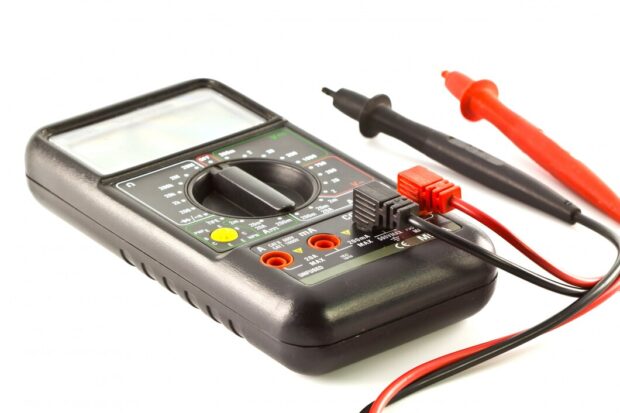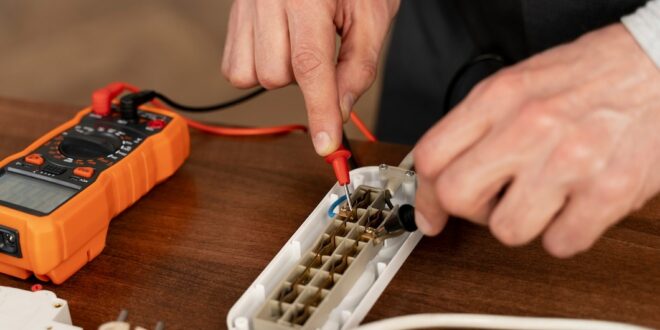Every business who wants to comply with health and safety advice needs to keep their electronic equipment in good working order and one of the best ways to test whether portable appliances are safe to use is PAT testing.
As a PAT tester, you’ll be responsible for checking the safety and functionality of portable devices within offices, stores, and other places of work. While not a legal requirement, many businesses and insurance policies require their equipment to have been tested and maintained and it is an ideal way to do just that.
If you’re looking to become a tester either for your business, or as a business offering testing to clients country-wide, here’s a guide to how important the testing is, and the training and insurance you might need.
What Is PAT Testing?
Portable Appliance Testing refers to the examination of an electric appliance to make sure it’s safe to use. The test usually involves a mixture of visual examination for any defects, as well as the use of specialized testing equipment that can find any internal defects that may not be caught visually. Both types of testing are important, as some defects may not be found by testing, and others may not be found simply by looking. Having a comprehensive approach to electrical appliances can help to find any faults that could lead to problems in the future.
How Important Is It?
No law demands PAT testing be done, however, the Electricity at Work Regulations 1989 does require that any electrical equipment, particularly any that has the potential to cause harm, should be maintained properly. Given the lack of direct guidance on how to keep electronics in a safe condition, it rests on business owners and individuals to ensure everything is safe to use.
It is a quick and simple way for businesses to keep on top of the maintenance of their electrical equipment, particularly in offices that may have hundreds of employees working at any one time. A full, regular test of all equipment can help them to find any faults or defects before they can become a health and safety hazard. In some cases, insurance claims can benefit from the record of maintenance that a PAT offers, which is why businesses often lean towards this route.
Should You Get Training?

If you want to become a PAT tester, you don’t officially need any specific training, however, getting training will put you in the best position to run a service. Whether your business is entirely centered around testing, or you want to start up as an electrician offering as an additional service, training will not only give you the knowledge and expertise needed to conduct tests safely, but it can also ensure you appear competent to potential clients.
What Training Is Available?
There are several training regimes available to you, ranging from simple online courses to classroom-based training at your local college or University. The training available in your local area may differ from another, so it’s important to do your research to find the best training programs for you and your current schedule. Night classes may be beneficial if you currently work full time, while those working part-time or on their schedule may be able to arrange a daytime course around their work.
You can also consider an Electricity At Work Regulations 1989 Electrical Safety training course if you want additional knowledge and information about PAT testing and the requirements workplace electronics face. Having varied but in-depth knowledge can help set you apart from the rest by offering expertise in electrical safety that others may lack.
Who Can Do PAT Testing?
If you’re using portable appliances — in whatever environment — you need to make sure they are safe to use. This is especially important in organizations and businesses where you are legally obligated to provide a safe working environment.
There is a national safety standard for electrical equipment testing. That is the AS/NZS 3670:2010 standard for the in-service safety inspection and testing of electrical equipment.
Can You PAT Test Your Equipment?

You can test your equipment if you have adequate training and devices. It is recommended always hiring an external technician to complete your tests.
This is advised because of compliance requirements. If you have documentation and testing from an external technician, you don’t have to be the liable party when workplace safety inspections come around. Rest assured knowing that your safety requirements are taken care of by a responsible organization.
PAT Testing Requirements For Businesses
Now that you know who can do it, it’s time to find out more about your requirements. If you own or operate a business, you need to make sure your portable equipment has been tested. There are different requirements for different environments.
For construction and demolition sites, the following rules apply:
• all portable equipment needs to be tested every 3 months
• the same rules apply to portable RCDs
• hire equipment must be inspected prior to hiring and once a month subsequently
Do You Need Insurance?
If you’re looking to start up your own business or simply want to add it as a service to your existing business, you may need to consider taking out a PAT testing insurance policy. When going into a workplace, you need to ensure that not only are they compliant with health and safety, but that you are too. Accidents can happen and while every care can be taken to prevent them, having a good insurance policy can help protect your business in the case of a claim. From something as simple as someone tripping over your equipment to missing an electrical problem and damage or injury occurring as a result, many claims can be made for illness, injury, and damage but PAT tester’s Insurance can provide protection and cover when you need it most.
Conclusion
For more information about PAT testing and how it can help you and your business, feel free to get in touch with the professionals.
 Jewel Beat
Jewel Beat

